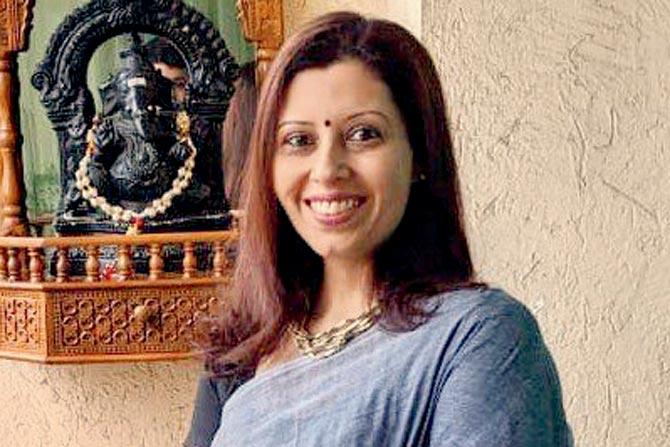Sushant Singh Rajput's suicide has brought the focus back on mental health and seeking help. But how do those who help us survive a mental storm handle their emotions when a client takes his life?

I was in training then, and though it was nearly 19 years ago, I remember her face clearly, when we had the last conversation," says Bengaluru-based Roshan Jain, a senior consultant psychiatrist and de-addiction specialist at Apollo Hospitals, while speaking about a patient who took her life a couple of days after their last consult. "She was a working professional and suffered from neurosis and anxiety. She had been unwell for some time, but had improved with treatment. At our last meeting, she said all the right things: had no negative thoughts, was not pessimistic, and was not talking about harming herself. I could sense she wasn't well, but she was telling me she was fine, so I asked her to continue with the medication."
Since he was in England at the time, he asked a community crisis team to check on the patient the next day. The patient wasn't home when the team contacted her and left it at that. When they visited her the next day, they found her hanging in her room.
Jain says that a patient taking their life is something psychiatrists have to come to terms with. "When you are a health professional, one of the things that will happen is that patients whom you treat will die. Sometimes, it will be due to other medical causes, and if you are a psychiatrist, there are chances that a patient could take their life."

Dr Roshan Jain
Quoting statistics, he says five to 10 per cent of those with schizophrenia and 10 per cent of alcoholics could go on to commit suicide. "For instance, a surgeon knows that the consequence of operating on patients is that some will develop infections and some will have other complications and die. And one of the occupational hazard of being a psychiatrist is a risk of patients untimely death by suicide. Fortunately it's a rare untoward incident. For any doctor, losing the patient is not something that one want to be experienced with, but by virtue of clinical training and practice, doctors learn to handle such eventualities. Of course, clinicians believe and expect that their patients won't die; we are in the business of saving lives, after all."
Yet, when a patient does take an extreme step, Jain says, psychologists and psychiatrists could go through the same stages of grief as any relative or friend.
These may include denial and disbelief, anger toward self or others, bargaining, depression and acceptance
Hvovi Bhagwagar, Mumbai-based psychologist and psychotherapist, and founder of Manashni, says the first time she received news of a patient's suicide, she went into a state of shock. "I couldn't believe what had happened and went silent for a bit, it was like I had lost my voice. The person who gave me the news was wondering if I was there."
Bhagwagar had been treating the patient for six months. Suffering from deep depression, the patient, she says, had expressed suicidal thoughts repeatedly. "I had asked her to touch base with me once every day via SMS or WhatsApp before sleeping. That day, she missed sending it at her usual time and I thought I'd check an hour later. However, before I could, I got a call saying that she had taken her life."
In the gamut of emotions that Bhagwagar went through, guilt followed the initial denial. "Most of my client sessions are recorded, so I listened to our last session over and over again. I wish I had reached out earlier, and not waited for even that one hour."

Hvovi Bhagwagar
The Powai-based psychologist says for a month after the incident she suffered from Post Traumatic Stress Disorder (PTSD) and showed typical symptoms including intrusion (with constant flashbacks of their last session, or tape recordings), hyper alertness (wondering if every patient with depression would be prone to suicide) and avoidance (trying to put off sessions with those she placed as at-risk patients).
With even sleep getting disturbed, Bhagwagar reached out to friends and family for support. She also consulted an EMDR—Eye Movement, Desensitisation and Reprocessing—practitioner, who helped her cope with her emotions.
As Jain puts it, mental health practitioners are trained to ask for help, especially in such situations.
"If there's a nurse whose patient commits suicide, and we see emotions such as guilt and blame in them, we are trained to debrief them, to help them accept their feelings and also gain a sense of detachment. It's the same steps that we take for ourselves," he adds.
Over time, you learn to manage your emotions better.
Dr Alpes Panchal, consultant psychiatrist and de-addiction specialist, says his first patient death came when he was pursuing his MBBS degree. "It wasn't a suicide or a psychiatric patient. But, I had to break the news to the patient's family and, having done that, I wondered how could I do something as normal as sit and eat a meal after [that]. Now, it's not as much of an emotional reaction as before."
However, the one reaction that all doctors have is the urge to know: "what happened? What triggered this?"
It's an answer, says Panchal, that he still doesn't have in the case of a patient who took his own life a few years ago. "I was not in town when it happened and a doctor who had referred the patient to me, called and said 'a person has jumped off the building, wasn't he your patient?' So, I went online and checked the news clipping and realised it was him."

Dr Alpes Panchal
Panchal says the patient suffered from substance abuse, but had been doing well. "I wanted to call up the family, with whom I had been in touch with, and ask what happened. But, I called my mentor—every mental health professional has one guide they share their thoughts with—who said it would be traumatic for the relatives to undergo a psychological autopsy at the moment. And that it was not advisable for me to seek contact and that I should wait for them to approach me." They haven't and Panchal hopes that one day he'll get closure.
If that was difficult, it's also tough when the family does contact you, seeking answers. Bhagwagar says it's a sticky situation. Sometimes, even if the family hasn't abetted the suicide, their behaviour might be the reason clients felt helpless at home. "How do you explain this to the family? Plus, revealing anything is breaking the confidentiality of the client. In such cases, I just tell them to process their grief naturally." When there's a police investigation, which often happens in the case of a suicide, mental health professionals are expected to share their notes and recordings.
Trained to practice detachment from patients and to keep boundaries—Bhagwagar for instance, doesn't allow most clients to add her on their social media accounts or contact her after sessions—sometimes, mental health professionals do change these lines. "If you have an addiction, even a trigger can tick you off and you could go back to abusing whatever substance it is and a bad trip can cause this [suicidal intentions]. A quick informing of triggers by relatives or patients will help [save their lives], and for this you must establish a good rapport with the patients. I want them to remember me before they remember cocaine," says Panchal.
And so, boundaries become subjective. "For some patients, if I maintain boundaries, I will never be able to treat them."
Catch up on all the latest Mumbai news, crime news, current affairs, and a complete guide from food to things to do and events across Mumbai. Also download the new mid-day Android and iOS apps to get latest updates.
Mid-Day is now on Telegram. Click here to join our channel (@middayinfomedialtd) and stay updated with the latest news
 Subscribe today by clicking the link and stay updated with the latest news!" Click here!
Subscribe today by clicking the link and stay updated with the latest news!" Click here!







